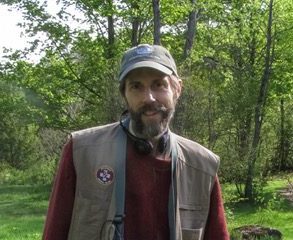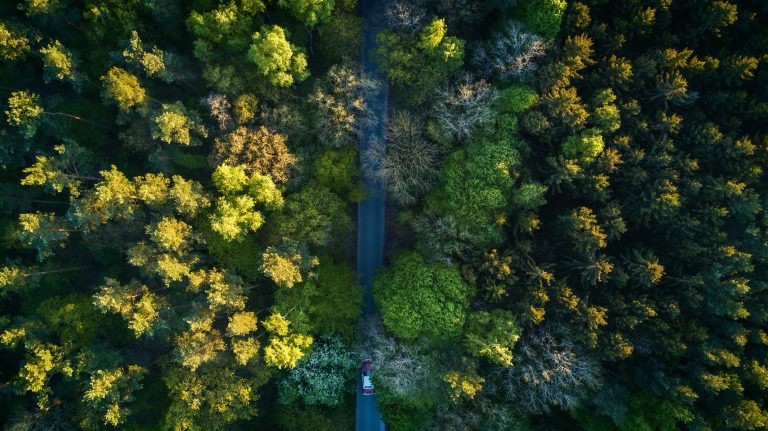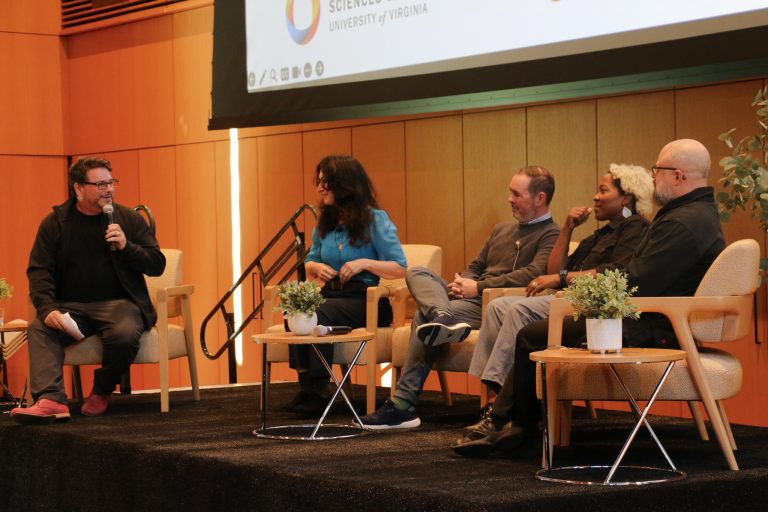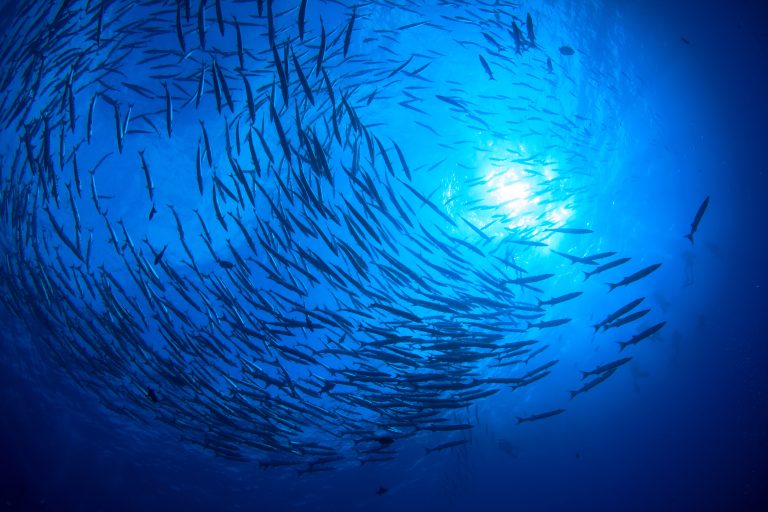Have you ever been stopped in your tracks?
Have you ever been confronted with something so far outside of your understanding that you were disoriented by it? Have you been shown to be absolutely wrong, when you were certain that you were absolutely right? Have you been touched by reality in a way you cannot begin to comprehend? Have you had your bedrock beliefs challenged so thoroughly that you wondered how deep your ignorance goes? Have you fallen into the abyss of not-knowing and come out utterly bewildered, realizing that the real cannot be known and the known is not real?
Here are a few of the occasions when reality stopped me and rearranged my world:
- hearing a humpback whale singing;
- meeting a girl in León, Nicaragua, her body shattered by bullets and shrapnel; returning home to find it no longer feels like home, and never will;
- realizing that I do not want to fit into a violent and exploitative society, but the disaster in society is also in me; it is me, the only me I know;
- meeting a fin whale and instantly falling into a timeless space in which the whole, unitary movement of life is the only reality;
- sitting in deep silence, in which time and self cease to exist;
- gray seals singing at dawn.
For years I followed the contemplative path I was taught: focus on the breath; repeat a mantra; turn away from intrusive thoughts; believe in the power of the human mind. When I was stopped in my tracks by reality, the idea that I could achieve enlightenment through mental effort evaporated. Each of these occasions was disconcerting in its way, challenging a familiar mental framework, revealing a wild world for which I had no map. By challenging the mind’s assumptions, they demonstrated that the mind wants its familiar world to reign supreme. The mind will ignore reality if necessary to keep its frameworks intact. The world I was searching for was already present, but the mind’s demand for consistent familiarity was obscuring the view.
This is what contemplation means to me now: the mind’s devotion to the mind’s world is brought to a complete stop by the living world. Everything that springs from the mind is brought to a standstill: all belief, all religion, all spirituality, even contemplation—unless contemplation is the interruption of the mind’s relentless self-perpetuation.
Take the example of my first meeting with a whale. This 80-foot being appeared out of the fog, just beyond the reach of my hand. For 15 seconds I was alone with one of the largest creatures on Earth. During those 15 seconds, nothing existed for me except that whale rising, exhaling, slowly gliding past, and disappearing back into the vast unknown of the ocean. During those 15 seconds the mind was quiet; thought was absent. Only the whale moved. Nothing happened except this whale’s hugeness and incomprehensible otherness and, somehow, our unity with each other, with everything. Multitudes of beliefs about how exceptional it is to be human were overthrown. In the whale’s presence I was unmade. 15 seconds with one fin whale taught me something that 20 years of experience with meditation had not yet driven home: in thought’s absence, “I” am also absent. I was unmade because “I” am created by layers of mostly unconscious thought. It was unavoidably clear and so very simple: “I” am a story of separation, a fiction told by the mind.
When I began articulating my sense of what a contemplative ecology might mean, a project that began for me in 1995 when I met that fin whale in the Bay of Fundy, I was motivated to discover, if possible, the roots of the ecological crisis. I recognized that it had to do with unbridled, exponential growth in human populations and our wants and needs, but was it possible to dig underneath that explosive growth and understand what was driving it in the first place? I had been a monk. I had 20 years of experience with meditation. I was concerned about disembodied spiritualities, both Eastern and Western, and about attempts to embody spirituality in overly sexualized or ethnocentric ways. I felt we needed a way of understanding the unity of body and spirit that would free us from the incessant demand for more stuff and more of ourselves. I thought my contemplative experience, combined with the force of that meeting with a fin whale, might reveal an answer.
Indiscriminate growth in human activity is destroying the planet. The ecological impacts of industrial societies are well beyond what Earth can support. It should be obvious that infinite material growth on a finite planet is impossible and deadly, but the demand for growth continues, as does the legacy of past invasions and conquests. The brutality behind the building and spread of human civilizations can be difficult to face when we depend upon that legacy for the only life we know. The life that many of us take for granted depends on so much destruction.
The ecological crisis is not an aberration. It is not a glitch in an otherwise smoothly operating system. It is the inevitable outcome of a system that is exploitative at its core, a system that includes civilized society and the civilized mind, capitalism and consumerism. An economy that demands infinite growth in material and energy consumption and perpetually increasing profits is mirrored by a mind that incessantly demands that growth to improve itself, to expand itself, to comfort itself, to protect itself. The cultural obsession with growth must stop, and so must the psychological demand for infinite expansion. If we think that we can carry on as we always have, and everything will work itself out, we need to be stopped in our tracks.
The life-destroying and spirit-crushing horrors of civilization are not new to contemplatives. Contemplatives have been meditating, fasting, dwelling in solitude, and moving at nature’s glacial pace—living in opposition to the dominant societal norms of more, better, and faster—for thousands of years. From its earliest incarnations contemplation has been founded on the recognition that something has gone terribly wrong in the human mind and human civilization. The remedies offered have been wildly different: sometimes radical and sometimes incremental, sometimes universal and sometimes parochial, sometimes individual and sometimes communal, sometimes this-worldly and sometimes otherworldly, sometimes withdrawing from society and sometimes engaging with it. But they have this in common: they understand that we got lost somewhere along the way, quite a long time ago. We became confused about what we are, what the world is, and how to live a just and balanced and peaceful life; and that confusion has led to disorder at every level of society, mind, and body.
The critical question for contemplatives in this era of ecological collapse is whether contemplation, focused into a contemplative ecology, can change the trajectory of a psychosocial system that is committed to infinite growth and self-perpetuation. If it cannot, then Contemplative Ecology is no more helpful than any of the other movements for change that are failing to address the root of this disaster. The modern American environmental movement has been active for 55 years if you start with the first Earth Day, 62 years if you start with Silent Spring, 77 years if you start with A Sand County Almanac, or 172 years if you start with Walden. We have had 47 years of conservation biology and more than 100 years of restoration ecology. All of that effort has not been for naught, but we are still faced with the harsh reality that things are getting worse for the planet, despite our best efforts.
What does Contemplative Ecology bring to the conversation that is different from those decades of thought, science, writing, and activism? It is the question of what lies at the very root of the crisis. What if the ecological crisis is not essentially about burning too much coal, oil, and gas? What if it is not, essentially, about razing forests to graze cattle; trawling the ocean floor; extracting every available mineral from the ground; traveling the world as if we own it, thereby spreading deadly viruses, fungi, invasive plants, and animals—and emitting even more carbon; or depending on an agricultural system that is built more around profit than food, so it tends toward practices that produce too much waste and use too much fertilizer, herbicides, and insecticides? Of course, all of those systems are contributing to the unraveling of the intricate relationships that lie at the heart of life. A compelling argument can be made that capitalism bears a large share of the blame for the ecological crisis by converting all human, animal, and planetary resources, all of life, into commodities that enrich a few, exceptionally self-serving corporations and individuals who are driving us all over the cliff; but what if even capitalism is a symptom of a deeper disease, not the root cause of the ecological crisis?
What if the root cause is that we are wrong about almost everything? What if we are not what we think we are and the world is not what we think it is? What if the essential disaster is not only out there in the world, but also in here, in us? What if our attempts to improve the situation, to address the crisis, to solve the problem, make it worse? What if human minds have become trapped in a net of their own making, and cannot get out because every movement they make weaves another strand into the net? What if we are living, not in relationship with reality, but in devotion to a deeply distorted mindscape that—in a never-ending loop—creates and is reinforced by a culture that is irrevocably violent and exploitative?
This has been the central lesson of my more than 60 years on Earth: most of us have dissociated from reality. We do not live in the actual world anymore; we live in our minds and in the fabricated worlds and devices that our minds have built. We think we are fully autonomous “selves” rather than members of ecological communities.
The separate self is a mind-made fiction, a mask without a face, an image without substance, but we live in absolute devotion to that image. That is the root of all of our problems.
The root of the ecological crisis is the compelling illusion that this self (or soul or spirit or consciousness) is our essential nature and that it is separate from the other animals, separate from Earth, separate even from the body. The demand for infinite material growth, which brings with it endless individual dissatisfaction, is a consequence of that pervasive illusion. We are drowning in our selves.
At some point we have to set aside the only world and the only self we know: our world-image and self-image, formed in the mind and projected onto the real world. How is that even possible? How can we break out of the only world we know? We cannot, not on our own, not without an intervention that comes from the living world. We come to the point where we realize that to address the root of the crisis, we must welcome the disruption of the perpetual motion of our lives, to welcome being unmade, to welcome the moment when all of our assumptions about what is true and normal—our frames around reality—are broken.
Deep, systemic transformation is required in the psyche and in the society, but our efforts to bring change perpetuate the problem because they emerge from the psychosocial system they seek to transform. The solution, if you can call it that, is to stop trying to solve the problem, to stop moving, to be absolutely and utterly brought to a complete standstill. It makes no sense to the restless mind—the mind convinced that it must be the source of salvation—but essential change follows from falling in love with this, right here, right now, as it is. Deep and lasting change flows out of that one pivotal undoing, giving up any hope of changing or any attempt to change anything. It is a complete revolution in a moment of perception.
One last layer of thought has to be discarded: an idea about what lies beyond the last layer of thought. Our fear of that unknown, that seeming void, that world without “me,” gives rise to all sorts of ideas about what it might be. God, Logos, Consciousness, Buddha Nature, Spirit, and so on form our final defense against the great emptiness of self, the absence of “me.” We may think that having an idea about it is the same thing as understanding it. It is not. The idea about the thing is never the thing itself. What remains when the last layer of an onion is peeled away? Nothing remains. Let it go. Let it all go.
Is contemplation only about loss? The loss is not optional. The emptiness of the self and the limitations of the mind cannot be avoided, not if we want to get to the heart of the matter, but it is only the loss of a cherished illusion! Living ecologically requires those of us who have benefited from the current system to give up our power, privilege, and possessions, but also to look at what takes their place: we swim in unfathomable immensity. Touched by that immensity, nothing can ever be the same.
If I am right about this, the resolution of our multiple ecological crises will not come from our clever minds. It will not come from a new technology or a new story or a new belief system, or from studying the mind or from perfecting our meditation practices. It will not come from us. It comes when we are stopped in our tracks and reoriented away from our selves, away from our mindscapes, toward the immensity that includes everything.
When the mind loses its power to enchant itself, what remains? The living world remains. The actual, real, dynamic, creative world remains, not only the bits we see and hear and touch, but the hidden life, the inner life of everything. Contemplation is both an insight into the limited nature of the mind and the slow, humbling process of being in relationship among multitudes of complex, living, inscrutable beings. Whether it happens partially or completely, suddenly or over time, does not seem to matter very much. It is a revolution, this turning away from the self toward the whole movement of life. The self loses its fuel. The promise of “more” loses its allure. Fear of loss and desire for infinite expansion collapse. When the mind’s world falls apart, we are set free from our obsessive need to hold onto a system that is ruining the world and making us profoundly unhappy.
With the mind-made self no longer central, we are free to listen to the land (by which I mean everything immediately at hand) and respond to it. By seeing through the self and being reoriented toward the whole movement of life, we discover the world as it is, not as we think it is or wish it to be. Our essential nature is a consistent, enduring relationship with each other and the wild world—the plants, the animals, the trees, the waters, the air, the soil—within a particular place. Everything can be itself, thriving as it will, speaking in its own voice, living in its own particular, incomprehensible ways. Nothing serves us or is required to reveal itself to us. Engagement with the wild becomes respectful and creative. This wild world is everything we are and all we need, yet it remains enigmatic and surprising, constantly present and forever hidden behind the veil of our understanding. That is what makes it wild; that is what makes it alive; that is what makes it interesting. Listening to the wind sighing in the pines or to a thrush singing his particular song, and realizing the power and presence of the lives that remain hidden from our limited view, reminds us that we belong here; this whole, wild world is who we are.
Three familiar contemplative practices come to mind as relevant to this wild, contemplative, ecological life, this recognition that everything is alive and we are not at the center: breathing, listening, and singing.
Our most obvious relationship with Earth is through breathing. 25,000 times a day we exchange life-giving oxygen and carbon dioxide, and we share hosts of informative molecules of scent and attraction and warning. Through breathing we engage with everything that lives. It makes sense that breathing is central to many forms of spirituality since it is essential to all life. What I want to emphasize here is that the essence of breathing is exchange or interrelationship; it is the most fundamental way that living organisms relate to each other and the living Earth. In ways we barely notice, breathing makes life possible and is our most fundamental reason for being.
Listening is the sine qua non of a contemplative life. It is equally essential to an ecological life. Thanks especially to its atmosphere and oceans, the mediums through which sound travels, Earth is constantly singing, speaking, and sounding, communicating among its many members. It is especially easy, and relevant, to listen to the birds because they are almost everywhere. The sensitivity curve of human hearing is tuned to the frequency of birdsong. We are made to listen to the birds, the great messengers of Earth. I spend a lot of time listening to and recording birds as they sing, talk to each other, navigate their worlds, peck at seeds. I do not consider myself a “birder.” My experience of birding is that the human role is to move as quickly as possible toward species identification. The task is to learn the visual and auditory cues that allow rapid identification of the bird that has come into view or into hearing range. A “good birder” is one who has amassed a large life list of different species, correctly identified. I am not saying all birders operate this way, but that was the dominant feature of the birding community where I tried and failed to find a home.
Instead, I prefer to listen to the birds without an agenda, to follow their activity through the sounds that they make with each other. I may not know what species I am hearing. I may not know what purpose their sounds serve—for them. What I do know, what becomes very clear through this, is that they have rich lives of their own, quite apart from anything that I might want them to be. And there is a sense of belonging that comes with realizing that we are continuously surrounded with and infiltrated by this rich movement of other beings, living their own lives for their own reasons, yet in proximity and relationship with us. And yes, I do find that relationship becomes possible between species, with care and respect and allowing others to be themselves.
Singing and other forms of sound expression are deeply related to breathing and listening. Our voices are not alone; Earth is full of voices who do not speak with a human voice. The birds and the wind and the waters and the trees and the silence have their own languages. Since life is so relentlessly vocal, might we find ways to join our voices with the voices of Earth? Sounding together (singing, drumming, playing instruments) builds social bonds among humans. From my observation of whales and seals and birds, I am convinced that song builds social bonds among them as well. It can build those same bonds between them and us as long as we are respectful. Our relationships with other animals are like our relationships with our human relatives: we are always in danger of projecting our desires and prejudices onto them. We have to give them room to be themselves, to confound our expectations. We also have to be aware of and compensate for power differences, something most humans have not done well for thousands of years. In other words, we need to approach our wild kin with humility, understanding that they have rich lives of their own. But to be in relationship, we also have to interact. With that basic relational caution firmly in place, I see no reason why we and our wild kin should not bring our voices together. This has become my favorite and most surprisingly delightful way of engaging with the natural world. I listen. I hear melodies. I expand those melodies and share them back. Do the birds or the seals, with whom I most often sing and play, recognize what I am offering? I do not know. I think they do. They often show up. They pay attention. Sometimes they respond; sometimes they do not. It is their choice. Either way, my sense of kinship with them grows with every exchange.
These are modest proposals given the enormity of the challenge. Stopping and taking the time to develop enduring relationships with the land and its inhabitants may seem simple, but they are not trivial. Being stopped completely and freed of the perpetual motion of the mind opens the door to the interrelationship with everything. Immense love lies on the other side of the loss, but being and having less is not easy in the face of a culture that screams incessantly for more.
We are here together and have to live together for our mutual thriving. The human brain’s seemingly relentless ability to believe in its illusion of independence, over and against the reality of interrelationship, is destroying the planet and all forms of community. If we want to resolve the ecological crisis, we must realize without a doubt that we do not exist as separate selves. We are certainly not all the same—we do not speak with one voice—but we are part of each other, one movement of life together. To know this completely and definitively, not as an idea but as a lived reality, we need to be stopped in our tracks.





